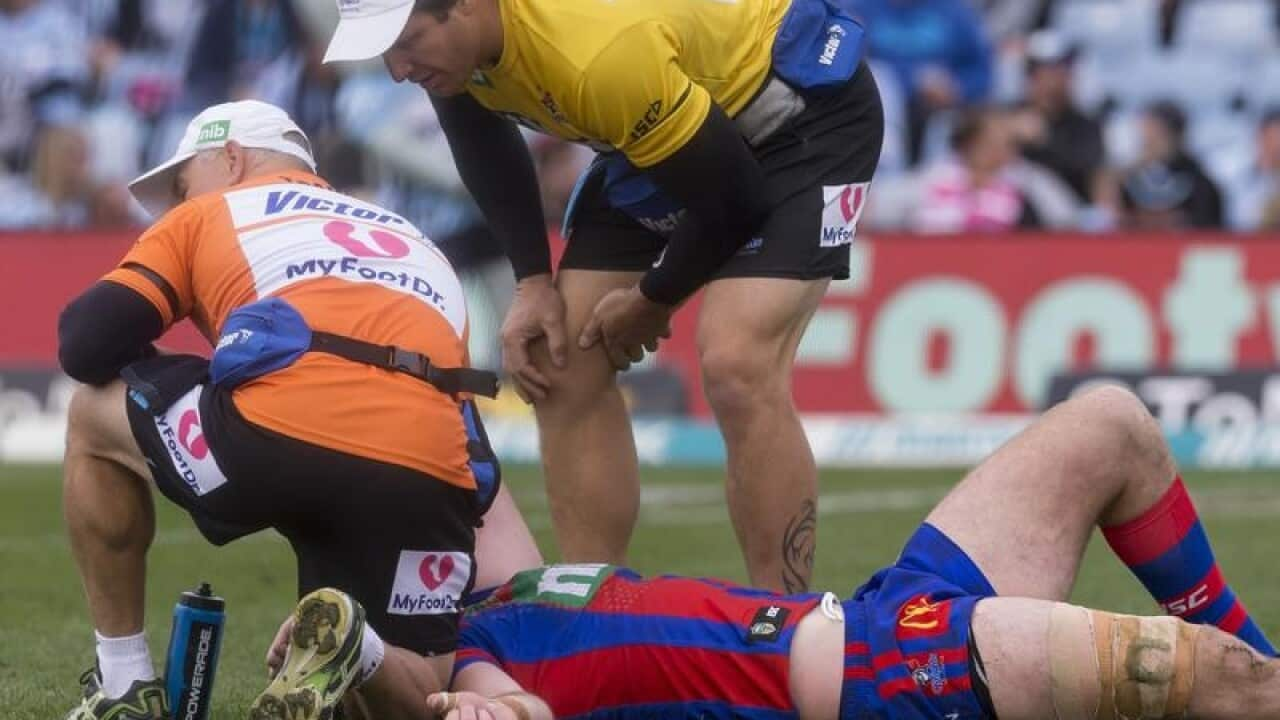Any contact sport carries a physical risk but while a broken bone will eventually heal, the effects of concussions can be more insidious.
That's why the Australian Sports Brain Bank (ASBB) is calling for funding from the government and professional sporting bodies to allow the rise of CTE, or Chronic Traumatic Encepalopathy, to be better traced and understood.
CTE is a degenerative brain disease caused by repetitive head trauma, which includes both concussions that cause symptoms and smaller subconcussive hits to the head that cause no symptoms. It remains unclear the number or types of hits to the head needed to trigger these degenerative changes, which have also been associated with the development of dementia.
Potential signs of CTE are behavioural changes including aggression and depression, and problems with thinking and memory.
At this stage the condition can only be diagnosed after death, but the goal of the Sports Brain Bank is to reach a point where the understanding of CTE will allow it to be diagnosed and treated before the sufferer dies.
Neurologist and co-director of the ASBB Dr Rowena Mobbs says many years of study are needed, especially when it comes to female brains, with evidence suggesting women and girls suffer more intensely from CTE.
"There is a lack of worldwide data around CTE risks for women and that is one of our priorities at the Australian Sports Brain Bank," Dr Mobbs told SBS News.
"It's thought that the female sex may have more prolonged symptoms after concussion and at greater severity and all neurologists would agree a younger brain may be more vulnerable."
The ASBB is asking people to pledge their brains once they die, in the same way people donate other vital organs such as hearts and lungs.
The organisation has had 15 brains to analyse so far, but this compares poorly with a similar research project in the United States that has received over 600 donated brains.
Accidents happen
Taryn Little, 16, was knocked unconscious at a recent junior girls AFL fixture in Sydney. She had to spend six hours in hospital to have a CT scan. Taryn complained of tingles in one of her hands and couldn't feel one of her feet after the collision.
Her trip to hospital also meant she had to miss her Year 11 exams at school; she was forced to undergo 14 days of isolation as a coronavirus precaution.
Although she loves the sport, with her HSC's next year Taryn will probably sit out next season as a precaution, her mother told SBS News.
Taryn's father Ian said while many parents are aware of the dangers of childhood sporting concussion, they want their children to be active.
"You want them to go out there and get them to be healthy and all that. But you're sort of hopeful in the back of your mind you're not going to go through this but it happens."
The effects of concussions on the brain isn't the only concern when it comes to CTE. Smaller hits to the head can also have a significant effect on the brain, Dr Mobbs says.
"It's the little head knocks without symptoms that may matter potentially most as far as CTE," she said.
"The data out of the US is pointing towards subconcussion as an issue."
If similar research here in Australia backs this up, it will make the decision of players and parents weighing up the pros and cons of contact sport much harder.
Lack of protection
The number of high-profile sporting celebrities being diagnosed with CTE after their deaths is on the rise. They include AFL players Graham Farmer and Danny Frawley and NRL player Steve Folkes.
But perhaps of more concern to the professional football codes is a similar increase in legal challenges from former players who claim not enough was done to protect them in their playing days.
Two former NRL players, Parramatta's Brett Horsnell and Newcastle's James McManus, have launched legal action over how repeated head knocks they suffered were handled.
In the US, more than 20,000 former players in NRL and associated gridiron leagues have been paid over $1.1 billion dollars in compensation.  Despite the obvious concerns that head knocks and concussions cause, Dr Mobbs, who has previously represented Australia in fencing and modern pentathlon, believes sport still has a hugely positive role to play in Australian society.
Despite the obvious concerns that head knocks and concussions cause, Dr Mobbs, who has previously represented Australia in fencing and modern pentathlon, believes sport still has a hugely positive role to play in Australian society.

James McManus carreis the ball for the Newcastle Knights Source: Getty Images AsiaPac
"None of us as researchers would say do not play. These are wonderful sports, we love them," she said.
"But we need to understand for the children and the future generations the risk of CTE."










